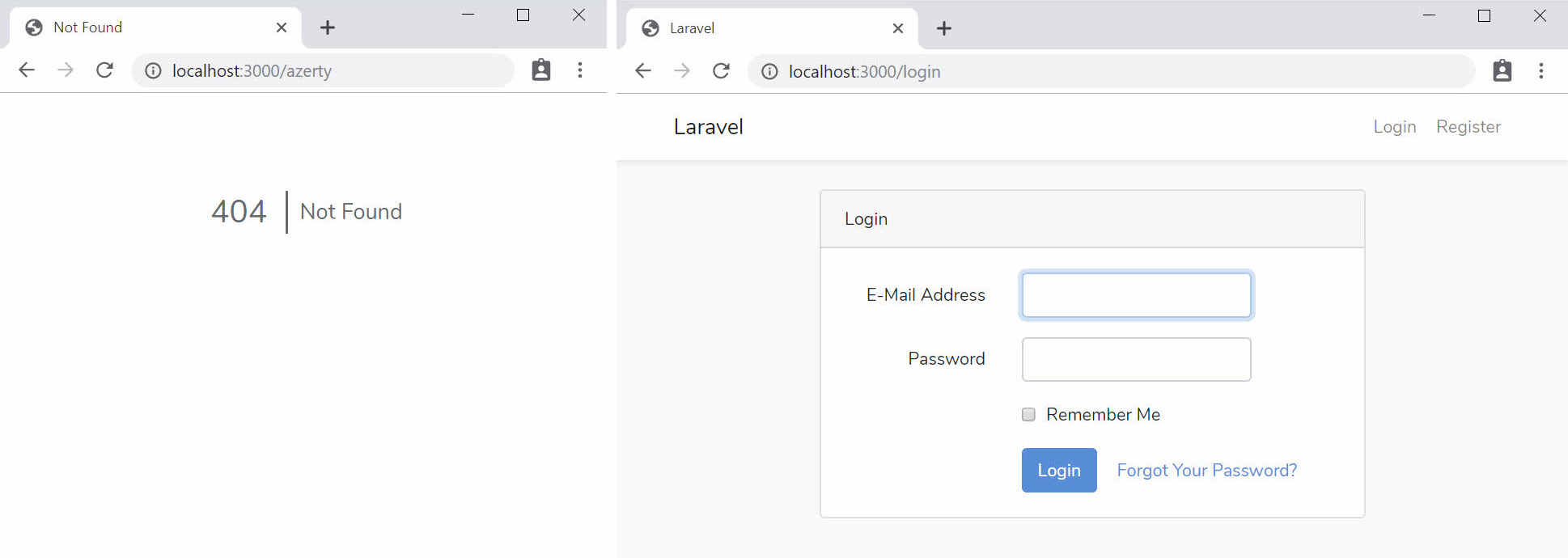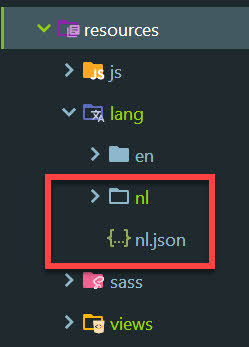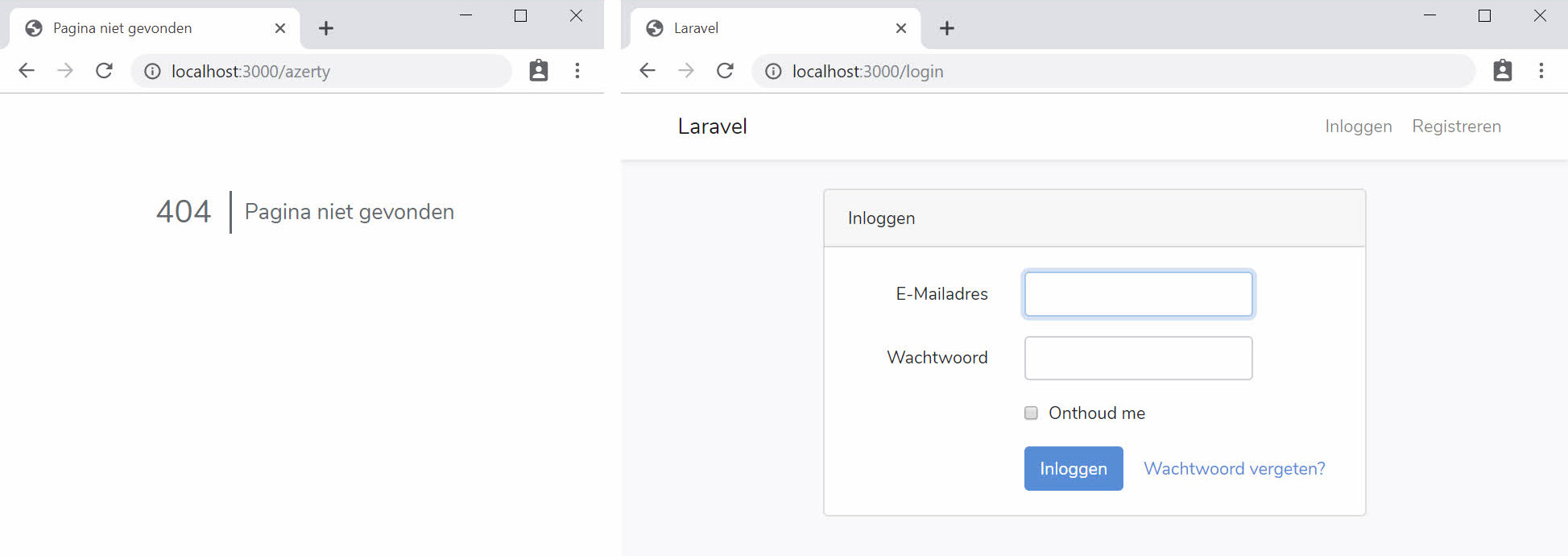Localization
- Laravel's localization features provide a convenient way to retrieve strings in various languages, allowing you to easily support multiple languages within your application
- Language strings are stored in files within the resources/lang directory. Within this directory there should be a subdirectory for each language supported by the application.
- Here you see the default view of the error 404 page (left) and the login page (right)

- All these pages can easily be translated to another language
Dutch localization
- Clone this repo to your desktop: https://github.com/caouecs/Laravel-lang
- Copy the folder src/nl from this repo to the folder resources/lang/ of your project
- Copy the file json/nl.json from this repo to the folder resources/lang/ of your project

- Open the file /config/app.php
- Find the entry
'locale' => 'en',and change it tonl(= Dutch)
- Find the entry
/*
|--------------------------------------------------------------------------
| Application Locale Configuration
|--------------------------------------------------------------------------
|
| The application locale determines the default locale that will be used
| by the translation service provider. You are free to set this value
| to any of the locales which will be supported by the application.
|
*/
'locale' => 'nl',
1
2
3
4
5
6
7
8
9
10
11
12
2
3
4
5
6
7
8
9
10
11
12
WARNING
At the time of writing the translation has not yet been fully converted to the latest version of Laravel. Therefore, you need to add some extra strings to nl.json.
- Open nl.json
- Add two extra strings:
...
"Not Found": "Pagina niet gevonden",
"Server Error": "Serverfout",
1
2
3
2
3
